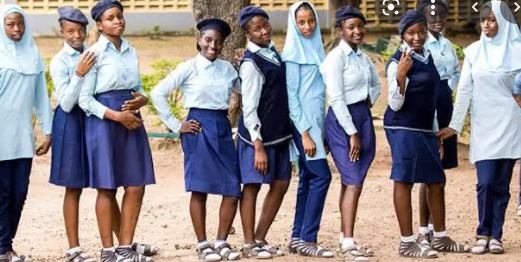UK, UBA Foundation, 10 Others In £20m Initiative For Girls’ Education In Nigeria, Others
The United Kingdom has launched a £20 million global partnership with UBA Foundation and 10 other organisations to improve girls’ access to education and employment over 12 years in Nigeria and other developing countries.
Prime Minister, Boris Johnson launched the initiative that includes Accenture, Standard Chartered, Unilever, Microsoft, Pearson, PwC, Coursera, Vodafone, BP and Cognizant.
The 11 global firms will work with the UK government in partnership with UNICEF’s Generation Unlimited (GenU) to fund the very crucial programme to provide high-quality skills training to around one million girls around the world.
For immediate commencement of activities, the UK government has contributed an initial £9m out of the £20 million required for the Girls’ Education Skills Partnership programme that is launched to commemorate the 2022 edition of the International Women’s Day (IWD).
UBA and the other 10 global institutions will provide the remaining £11 million for the provision of a range of resources including books, computers and other technology, mentoring, advice and access to their networks, skills and training programmes just as the private sector involvement will help ensure that education and learning opportunities are provided with the skills for the future that employers need.
The initiative will be highly beneficial to Nigeria which is home to 10.5 million out of school children, which is the highest rate in the world. The figure indicates that one-third of Nigerian children are not in school, and one in five out-of-school children in the world is a Nigerian.
It will also provide opportunities for many girls in Nigeria which is seen as a country with a large gender disparity between the education that boys and girls receive.
In Nigeria, many girls do not have access to adequate education past a certain age according to a 2010 study which shows that the female adult literacy rate (ages 15 and above) for Nigeria was 59.4 per cent in comparison to the male adult literacy rate of 74.4 per cent.
The UK government explaining its drive to undertake this project which is expected to have far-reaching positive effects for the girl-child across the world pointed out that even before the Covid pandemic, millions of children did not have any access to school – and girls from disadvantaged families are particularly vulnerable to missing out on education, whether through poverty or prejudice.
The pandemic has created even more barriers to education, with a peak of 1.6 billion children around the world who have faced school closures.
Prime Minister Boris Johnson pointed out that this is UK’s first education partnership where the Government is joining forces with the private sector to boost girls’ access to education in developing countries.
“The United Kingdom has long been a proud and mighty champion of this fundamental cause and today we take one leap further through our first Global Partnership of its kind – opening up opportunities for one million girls across the developing world to have access to high-quality skills training.
Continuing, Boris said, “Ensuring every girl and young woman across the globe receives 12 years of quality education is the greatest tool in our armoury to end the world’s great injustices. “Delivering on this mission will be one of the best defences against ignorance, ensure the greatest protection from prejudice and put a rocket booster behind our hopes and dreams for global development in the years to come.”
Johnson noted that some of the businesses involved will be contributing a range of resources including books, computers and other technology, mentoring, advice and access to their networks, skills and training programmes just as the private sector involvement will help ensure that education and learning opportunities provide girls with the skills for the future that employers need.
The Group Chairman, United Bank for Africa(UBA), Tony Elumelu reiterated the importance of educating the girl child and giving back always as we strive towards sustainable development.
“We understand first hand, the need to empower young women in African communities to catalyse sustainable socio-economic development. At the UBA Group, we are committed to women empowerment and we continue to champion women’s causes in our business and through our work in philanthropy. Working together, we must ensure that our girls are properly educated and attain the necessary skills that allow them to effectively compete as the world becomes increasingly global,” He added.
Elumelu thanked the Prime Minister and the UK Special Envoy, Helen Grant, for the laudable initiative that will see more girls globally, being educated.
The UBA Foundation is the Corporate Social Responsibility arm of the United Bank for Africa group. The Foundation is focused on initiatives that support Education, Empowerment and the Environment in the African country. For over two decades, the UBA Foundation has been giving back and changing lives on the continent.



Comments are closed.